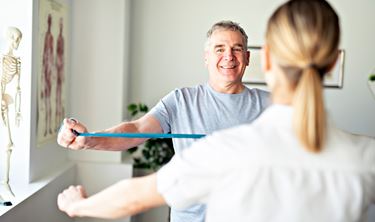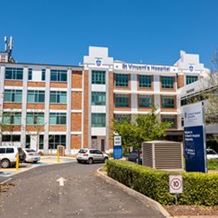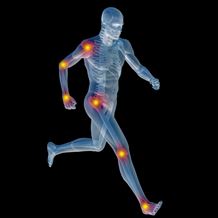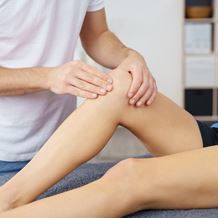Patient resources Rehabilitation Services

- Home
- Our Hospitals
- St Vincent’s Private Hospital Toowoomba, QLD
- Patient Information
- Rehabilitation Services
Important information for all patients
Please read prior to admission
PDF file for download/print
The Rehabilitation Unit- St Michael's
The Rehabilitation Unit offers a specialised, multidisciplinary rehabilitation program tailored to the individual’s needs and goals. Our staff helps patients regain their physical function and daily living skills with the aim of returning them to their previous lifestyle.
On admission
A full clinical assessment will be undertaken at the time of your admission. This assessment includes: your temperature; blood pressure; pulse; ECG; urine testing; post residual bladder scan; blood sugar; chest x-ray (if required); weight and blood tests. Any abnormalities will be reported to your doctor.
What to bring
- Comfortable day clothes to exercise in. These also allow us to sort out any difficulties with your dressings.
- Well-fitting and comfortable shoes with low heels.
- Toiletries.
- Night wear.
- Medications, prescriptions and medication lists from your pharmacy.
- A small amount of money for incidentals (about $20).
Health fund eligibility
Check that your health fund covers the St Vincent’s Private Hospital Toowoomba Rehabilitation Program.
For further information, please contact the Rehabilitation Unit on (07) 4688 5200.
What to expect during your rehabilitation
Physiotherapy:
The Physiotherapist is the member of the rehabilitation team concerned with maximising your mobility and quality of life. On admission your Physiotherapist will assess your condition and, together with you, decide on achievable goals. A treatment program may include gait training, balance activities, exercises and endurance work. You may attend the physiotherapy gym six days a week as necessary. Generally, there are two physiotherapy sessions five days per week. Nursing staff will assist you (if required) to be showered, dressed and ready to participate in therapy sessions by 9am. Patients will also be given an exercise program that they are to initiate at other times during the day.
Occupational Therapy:
An Occupational Therapist (OT) assists patients to achieve independence in their daily activities. Your OT will meet with you on admission and design an individual program to help you achieve your goals. Your OT may focus on the skilful use of your upper limbs and your thinking and memory. Your OT may suggest modified tasks or the use of equipment to assist you to do things for yourself. OT services may include relaxation classes, education in saving energy and making tasks easier and tips for preventing falls at home. You may need some modifications, installations or equipment in your home to make it safe. Your OT may offer a home visit to assess what is needed, help you to obtain the equipment and help arrange any modifications or installations.
Case Conference:
The multidisciplinary team meet on a weekly basis to discuss your progress through your individualised rehabilitation program.
Afternoon sessions:
Physiotherapy, OT and nursing staff will provide afternoon education sessions. These sessions may include: relaxation techniques, balance exercises, falls prevention, constipation prevention, continence management, hip precautions and stocking application.
Meals
Rehabilitation patients are encouraged to have breakfast, lunch and dinner in the dining area.
Visiting hours
Hospital visiting hours are between 10am - 8pm, however, rehabilitation sessions require a considerable amount of concentration so we ask that visitors avoid visiting during established therapy times.
On discharge
Hospitals are responsible for ensuring all issues that may affect your care after you are discharged from hospital, are addressed before you leave the hospital.
It is vital that any special needs you might have at home, after you are discharged, are identified early so that the appropriate discharge plans can be made.
We encourage patients and their families and carers to discuss any issues or concerns they may have with the doctors, nurses and the Discharge Co-ordinator so that these special needs can be identified.
When you go home
Your local doctor and surgeon will receive a summary of your care while you have been in the rehabilitation unit and the plan for your discharge. If you need any ongoing therapy after leaving the unit, your therapists will discuss this with you and make appropriate arrangements.
There are a variety of community services and support that can be arranged to help you and your family. The team can refer you to services such as:
- community nurses
- domestic assistance
- transitional care programs
Related Content

Patient Information & Safety- Admission Information
Information about patient admission at St Vincent's Private Hospital Toowoomba.
Read More
Orthopaedics- Hip Replacement
Information for patients having hip replacement surgery at St Vincent's Toowoomba.
Read More
Orthopaedics- Knee Replacement
Information for patients having knee replacement surgery at St Vincent's Toowoomba.
Read More
